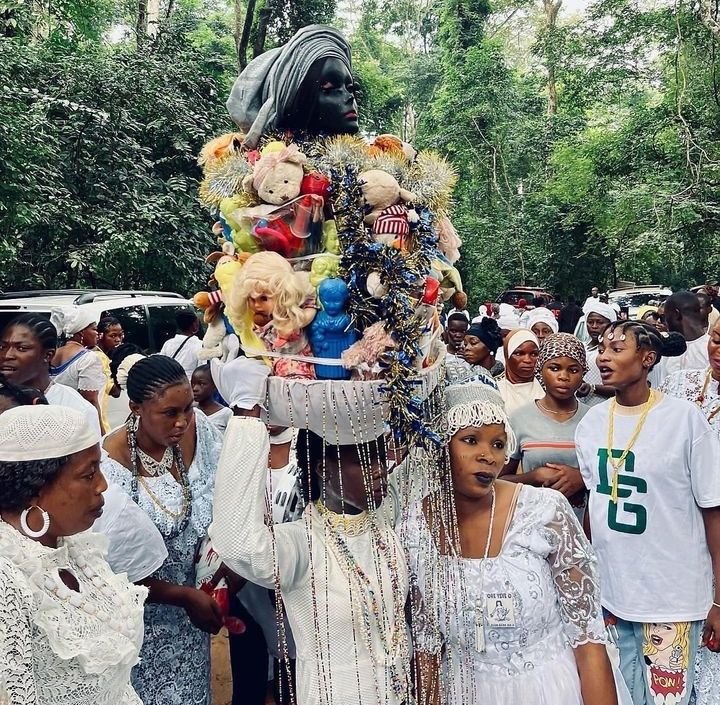The Yoruba traditions are a well-known culture in Africa and some other parts of the world. Everyone usually wishes to understand and be able to speak the language.
Yoruba traditions are known for love, respect, discipline, compassion, accommodation, and some other things that can be traced to a well-trained person.
The etiquette of the Yoruba traditions reminds me of how I was trained and brought up when I was young.
At this time, I was trained to always show respect to elderly people and that, whenever I see one I should greet them, and if peradventure they're holding or carrying a load, I was taught to help them with whatever they are carrying or doing.
I was corrected and punished several times for disrespecting my elderly ones. This reminds me of an old man in my church when we were young; anytime we greeted this old man, we had to prostrate well as a male child while the female would kneel with their two legs to greet him. A refusal to do any of this will lead to punishment, and no one would love to be punished in the presence of his or her mates; it will bring shame.
At this point, I came to realize that every action has a reward. If you obey, you will earn the reward, and if you do otherwise, you will also earn.
All these things have been a great lesson for me, and it has been helping in some situations in which I found myself.
Yoruba traditions also preach love among each other, and that is why you will see some houses in Yoruba land where an elder brother is living in the same compound with his siblings and their children. This has been helping Yoruba people to live in peace, love, and harmony with each other.
Compassion is another virtue that upholds the Yoruba traditions everywhere. They are always compassionate with each other and they are always available and ready to help people who need help.
Yoruba traditions always accommodate people, and that was the reason they said Yoruba is the most accommodating tribe, and that was a part of Yoruba traditions.
It is a tradition in Yoruba land that, whenever a King travels out of his kingdom, he must return to his palace on that day. They said the head that wears a crown doesn't sleep outside. (Orí-adé ò kín sùn ìta).
Whenever a king is dead, they usually perform some traditional rituals after the demise of the king and before the installation of another king. These are some of the traditions of Yoruba culture.
There are different traditions in the Yoruba culture, and some of these involve a town, villages, and families.
It is their tradition in some towns and villages that every year, they usually have some of their gods (idols) to celebrate, and many of their children living abroad come back home for this festival. Some of the festivals include; the Egungun festival (masquerade), Ogun festival (god of iron), and there is a festival called Osun Oshogbo; this is a festival where they worship and celebrate a river goddess. The festival usually brings people together from all parts of the world irrespective of their religion and beliefs, and they make their requests at this festival with the belief that it will be granted unto them.

This image is mine
The traditions of some families are that whenever they give birth to a child, according to history they will tell the mother of the child not to eat a specific type of food. While some families will engrave a name or a sign on a part of the child's body.
These are traditions that are being practiced by some families and towns.
Their traditions have been helping them to cub some of the things that can cause problems for them, and they believe that going against this tradition can lead to severe problems.
Posted Using InLeo Alpha
Congratulations @adeagbotofunmi! You have completed the following achievement on the Hive blockchain And have been rewarded with New badge(s)
Your next target is to reach 1000 upvotes.
You can view your badges on your board and compare yourself to others in the Ranking
If you no longer want to receive notifications, reply to this comment with the word
STOPThat really shows how diverse culture is. I’m just imagining the engraving of name done on a child. Is there a particular reason for it?
Yes!
It is a sign to prove that they belong to that particular family.
You can find it on the body of the family that is ruling in OYO TOWN.